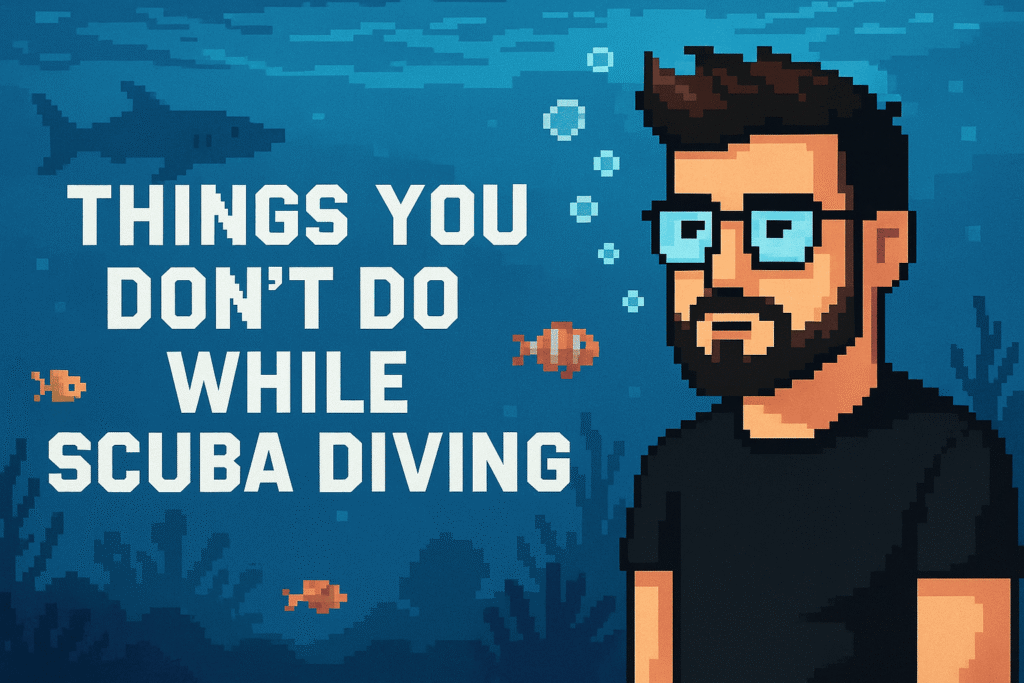Reading time: 8 min
Scuba diving isn’t your world. Let’s get that straight right from the start. You’re not in charge down there. You’re not the apex predator. You’re not special. You’re a soft, fragile mammal who needs a tank strapped to his back just to breathe. The ocean doesn’t welcome you with smiles. It doesn’t care if you’re curious or excited. You’re a guest, plain and simple, wandering through a house that doesn’t belong to you. And unlike a human host, the ocean doesn’t tolerate bad guests. It doesn’t roll its eyes. It doesn’t give you a second chance. It destroys you.
People always act like scuba diving is some kind of sport where you can improvise. No. This isn’t soccer. You don’t “wing it” with scuba. There are rules you follow not because some dive instructor wrote them in a manual, but because the ocean makes the rules and you either respect them or you get wrecked.
Here are the things you absolutely don’t do while diving — the stuff that separates a safe diver from a cautionary tale told in hushed tones on the next boat ride.
Don’t Hold Your Breath
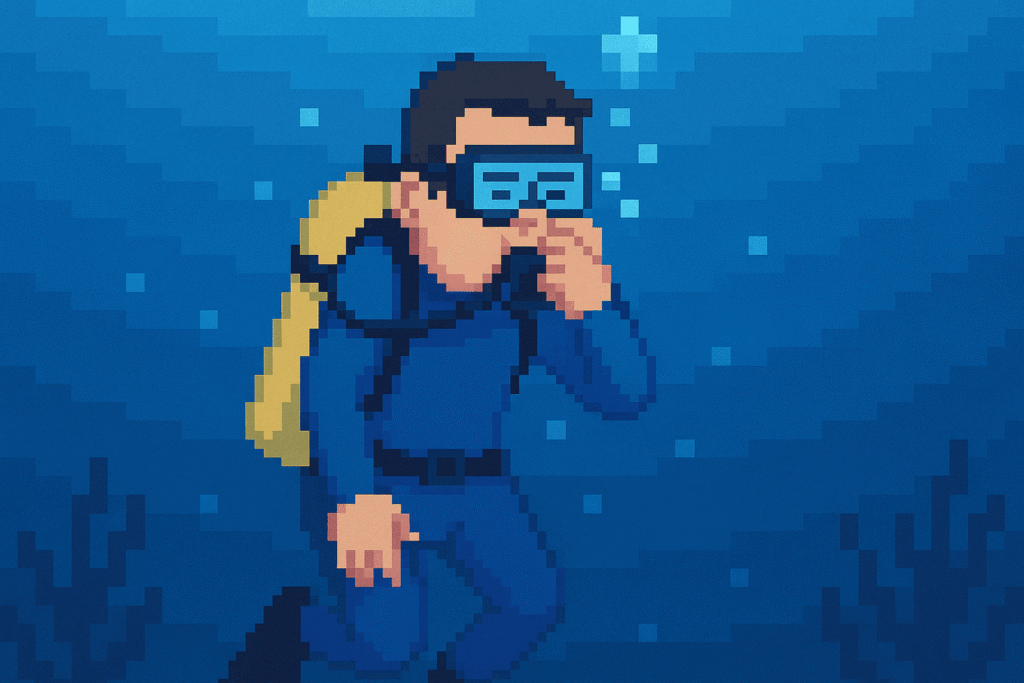
Rule number one: breathe. Simple, right? But no, every rookie thinks they’re auditioning for Aquaman. They try to test their lungs or hold their breath on the way up. Let me make this very clear: the air in your lungs expands when you ascend. If you’re holding it in, you’re basically turning your chest into a pressure cooker. The result? A very quick, very ugly end.
It doesn’t matter how strong you are or how long you can hold it on land. Down there, physics doesn’t care. Air expands, lungs burst. End of story. Guests don’t mess with the gas pipes in someone else’s house, and you don’t mess with your lungs in the ocean.
Don’t Skip the Buddy System
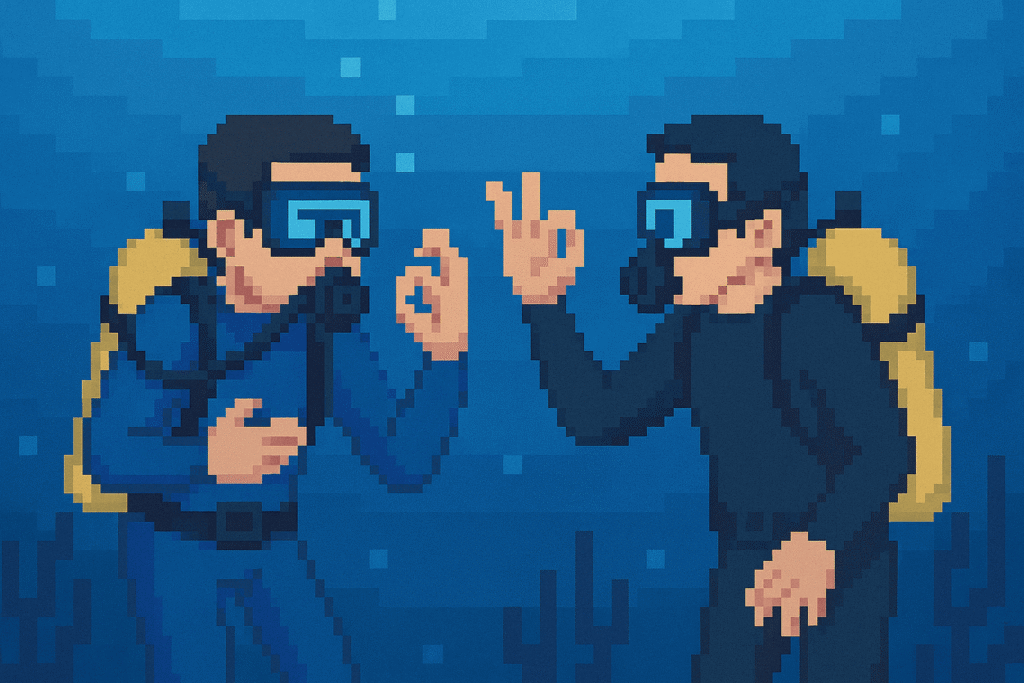
Some divers love to brag about going solo, like it makes them hardcore. No, it makes them a liability and a headline. The buddy system isn’t about hand-holding or babysitting. It’s about survival. One bad current, one broken reg, one cramp that locks your leg like a vice — if you’re alone, you’re toast.
Now, I’ll admit, I sometimes bend this rule. I’ve done dives with just family nearby because I trust them with my life. But heading out totally alone with nobody around? That’s not bravery, that’s suicide in slow motion. The ocean isn’t mapped for your convenience. You wander in without backup, and you’ve basically kicked the door into a stranger’s house at midnight and yelled “surprise.” Good luck with how that turns out.
Don’t Mess With Marine Life
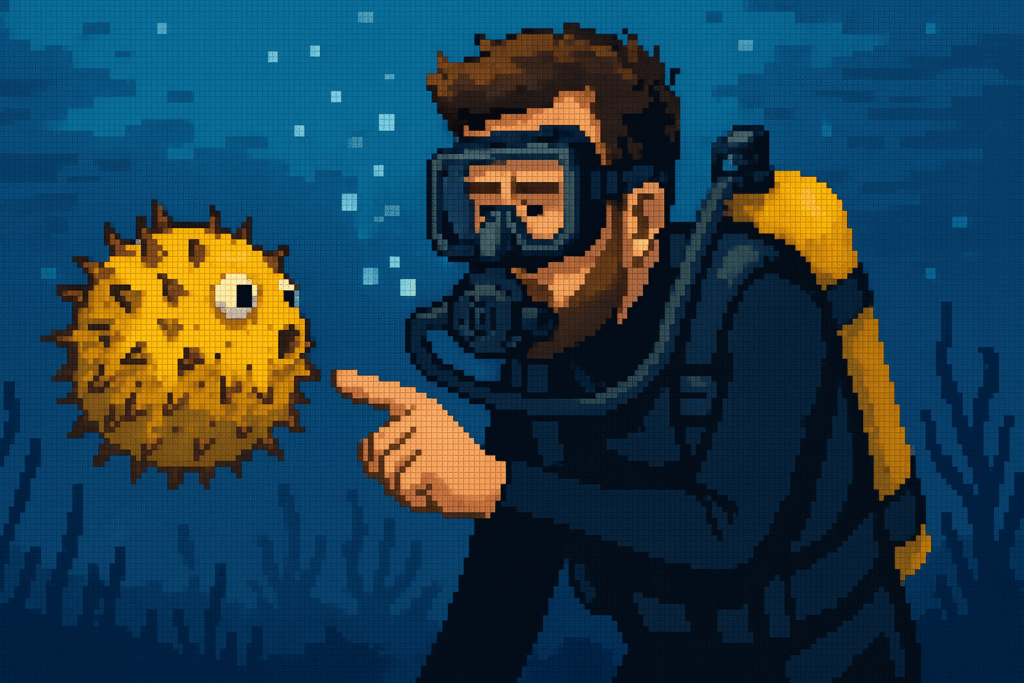
This one drives me nuts. The clown parade of tourists who see a turtle and instantly want to ride it like a Pokémon mount, or the guy poking at pufferfish like it’s a stress ball. Newsflash: you’re in their living room. The fish don’t owe you anything. They’re not props for your Instagram.
Mess with them, and you’ll find out real quick that the “calm host” thing doesn’t apply here. Lionfish will poison you. Moray eels will take a chunk out of your arm. Even coral will light you up with rashes if you get too handsy. I’ve watched divers kick coral without a second thought — congratulations, you just killed something that’s been growing for hundreds of years. Guests don’t slap the host’s pets. Show respect or pay for it.
Don’t Ignore Your Air Gauge
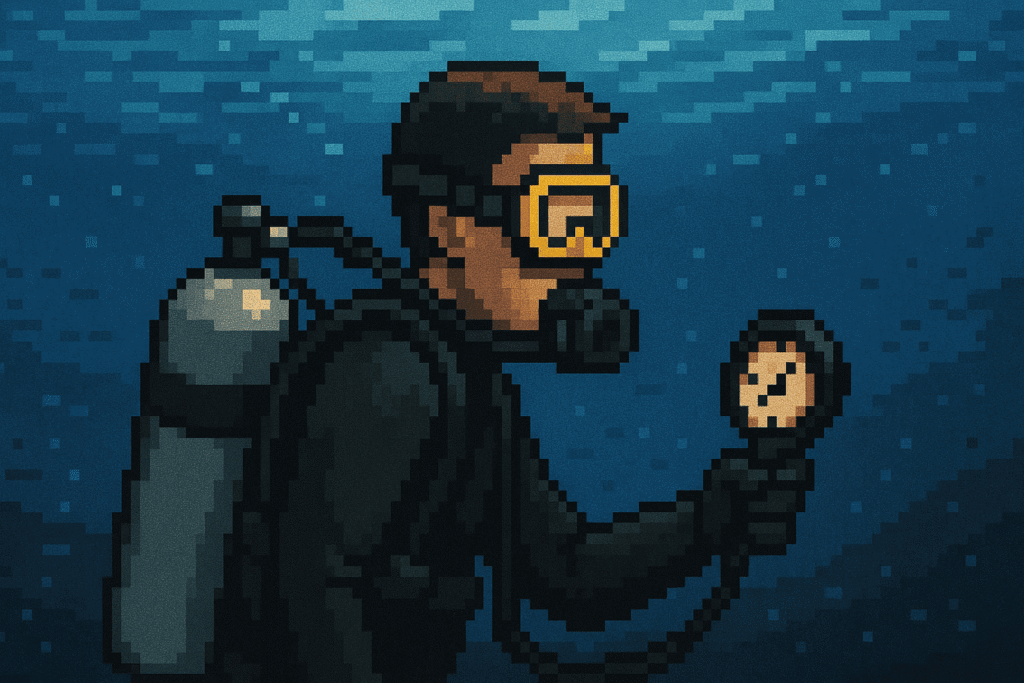
I cannot stress this enough: check your damn air. If I had a dollar for every diver who came up gasping “I ran out at twenty meters,” I’d have retired on a beach by now. Running out of air underwater isn’t bad luck. It’s bad planning.
Your tank is your visa to the underwater world. The second it’s empty, your pass expires. And unlike overstaying a tourist visa, the ocean doesn’t fine you — it kills you. I’ve had my share of dives where I was too focused on filming or following a fish, but that little nagging voice in my head always said “look at the gauge.” That voice has kept me alive more times than I can count. You don’t ignore your fuel gauge on a road trip. Don’t ignore your air at thirty meters down.
Don’t Ascend Like a Rocket
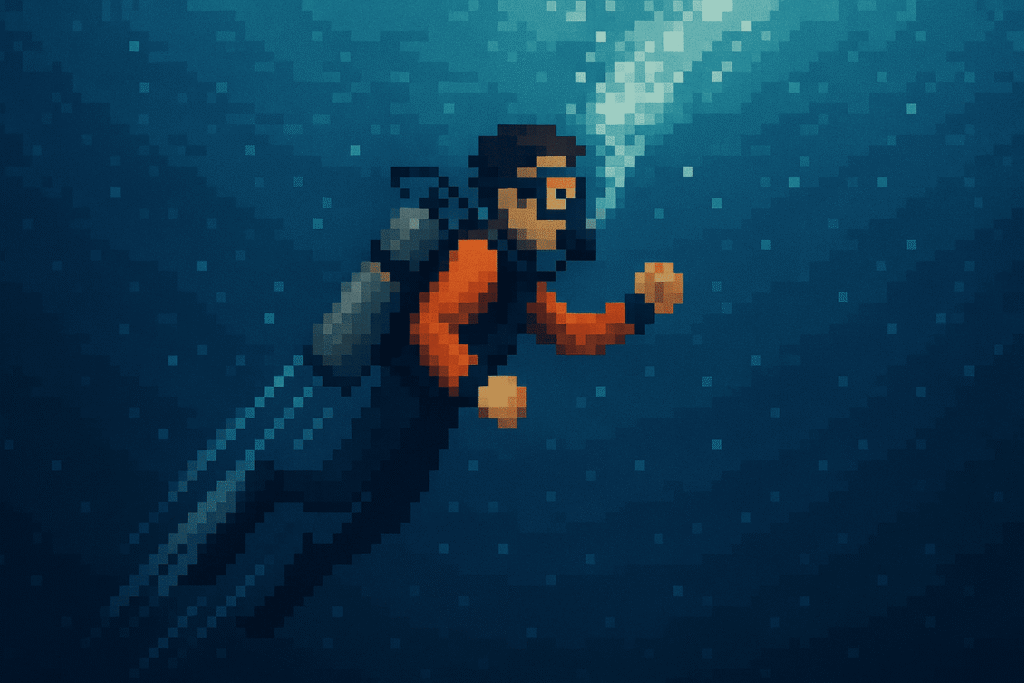
The bends. Every diver’s nightmare. Nitrogen bubbles forming in your blood and joints because you were too impatient to come up slowly. Sounds fun, right? It isn’t. It’s agony. It’s a chamber ride at best and a funeral at worst.
But every dive, there’s always one genius who decides to bolt to the surface like they’re Vin Diesel in Fast and Furious: Atlantic Drift. Newsflash: nobody’s impressed. The ocean doesn’t give medals for speedrunning your ascent. It just punishes you. Respect the pace. Guests don’t sprint through someone else’s house knocking over furniture. Divers don’t rocket to the surface.
Don’t Overweight Yourself
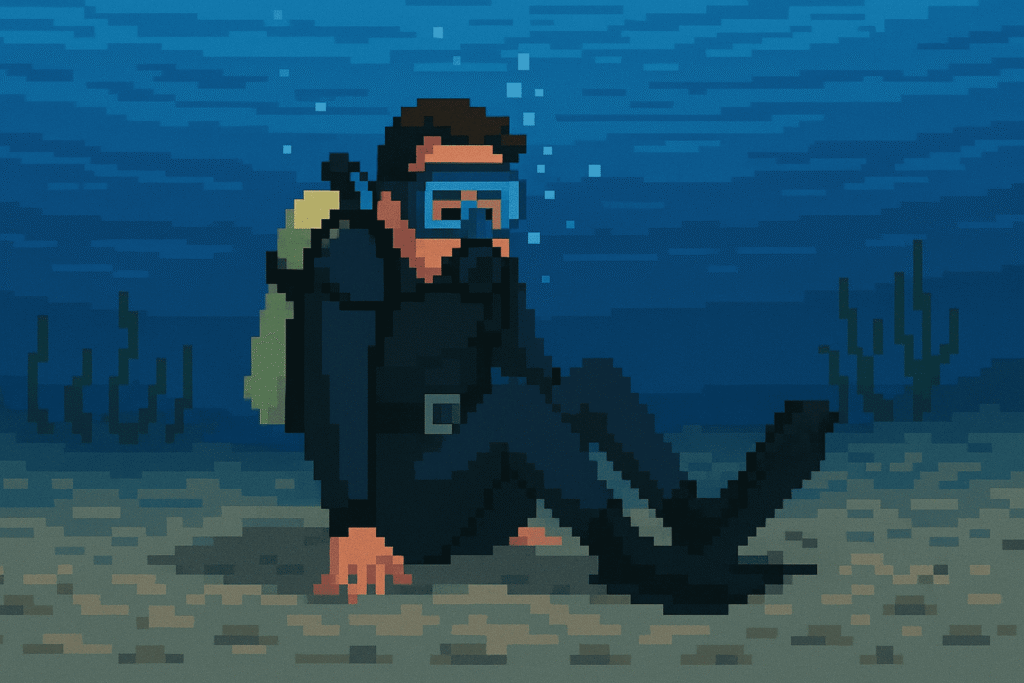
Some divers strap on extra lead like it’s a fashion statement. “Oh, I like being stable.” No, you like sinking like a mafia victim in concrete shoes. Overweighting means burning through your air twice as fast, struggling to stay balanced, and looking like a beginner no matter how many dives you’ve logged.
I’ve seen guys crash into the bottom like falling safes, sending sand clouds everywhere and ruining visibility for the entire group. The ocean isn’t adapting to you. You adapt to it. Respect buoyancy, because buoyancy is grace. And grace is how you avoid looking like a trash bag flailing in the current.
Don’t Skip the Safety Stop
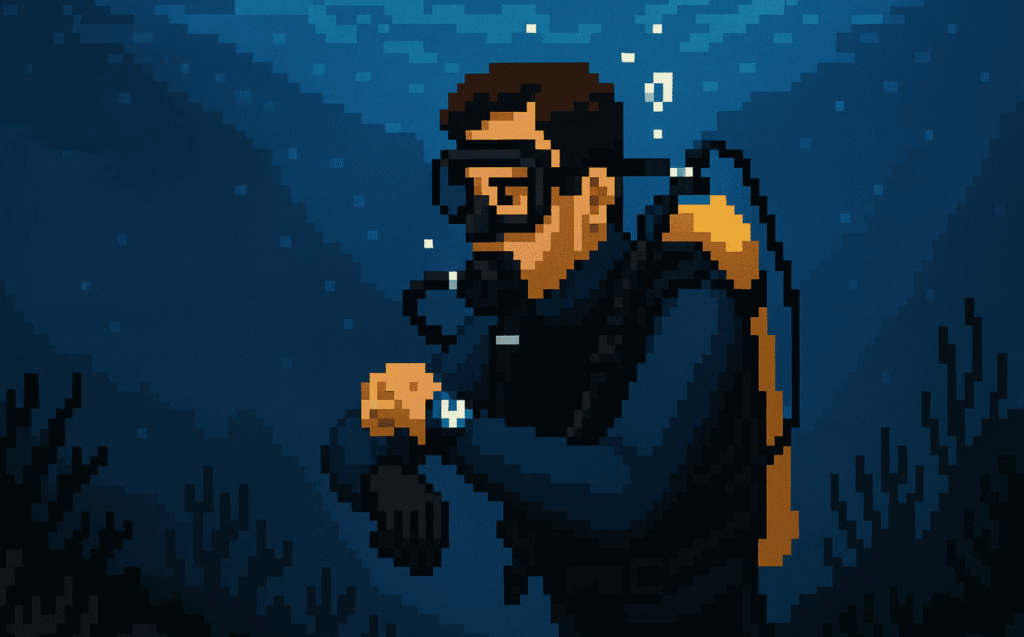
Three minutes at five meters. It’s boring, I get it. Nothing to look at, nowhere to go. Just you, hovering, waiting. Feels like sitting in traffic. But that’s traffic you have to sit through, because it clears the nitrogen from your system. Skip it, and you’re gambling with decompression sickness.
I’ve done dives where I was exhausted, freezing, or just wanted to get out. But the rule is the rule. Respect the safety stop. Guests don’t storm out of a house without saying goodbye. Divers don’t skip their stop if they want to dive again tomorrow.
Don’t Dive Beyond Your Training
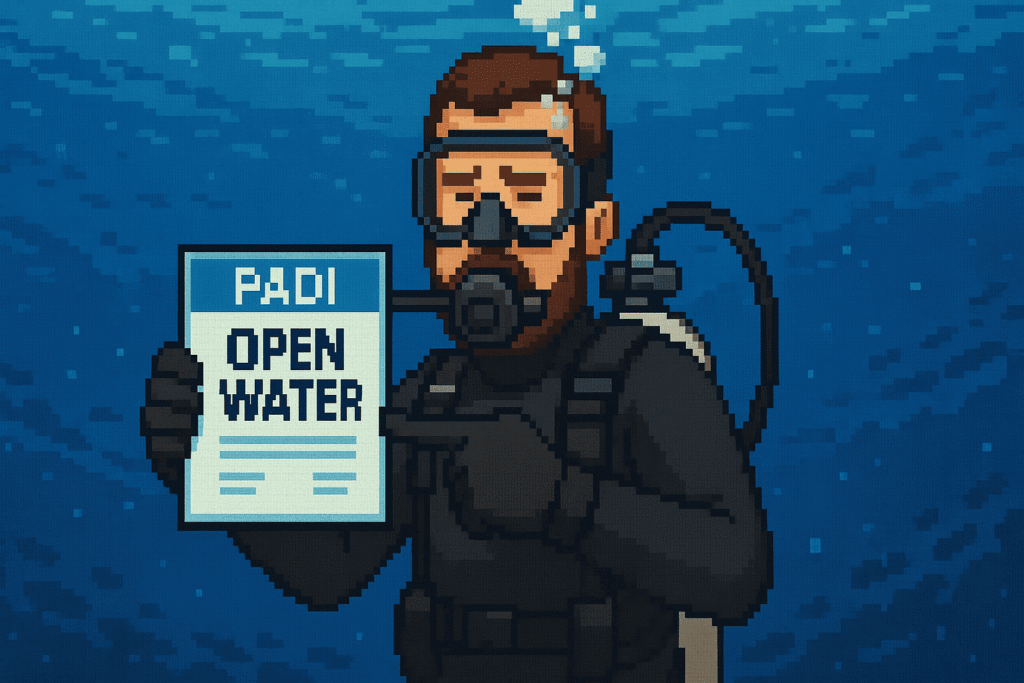
This one gets people killed more than anything. You get your Open Water cert and suddenly think you’re Cousteau himself. You’re not. You’re trained for 18 meters, not 40. You’re trained for daylight reef dives, not night wrecks with ripping currents.
I’ve gone beyond limits, sure. I’ve done night dives, deep dives, even barnacle scraping jobs under yachts in pitch-black water because Oman’s sun makes daytime work unbearable. But I knew the risks, had the experience, and trusted the people I was with. A new diver has none of that. The ocean is patient. It’ll be there when you’re ready. Trespass into rooms you’re not prepared for and it’ll chew you up.
Don’t Fiddle With Your Mask
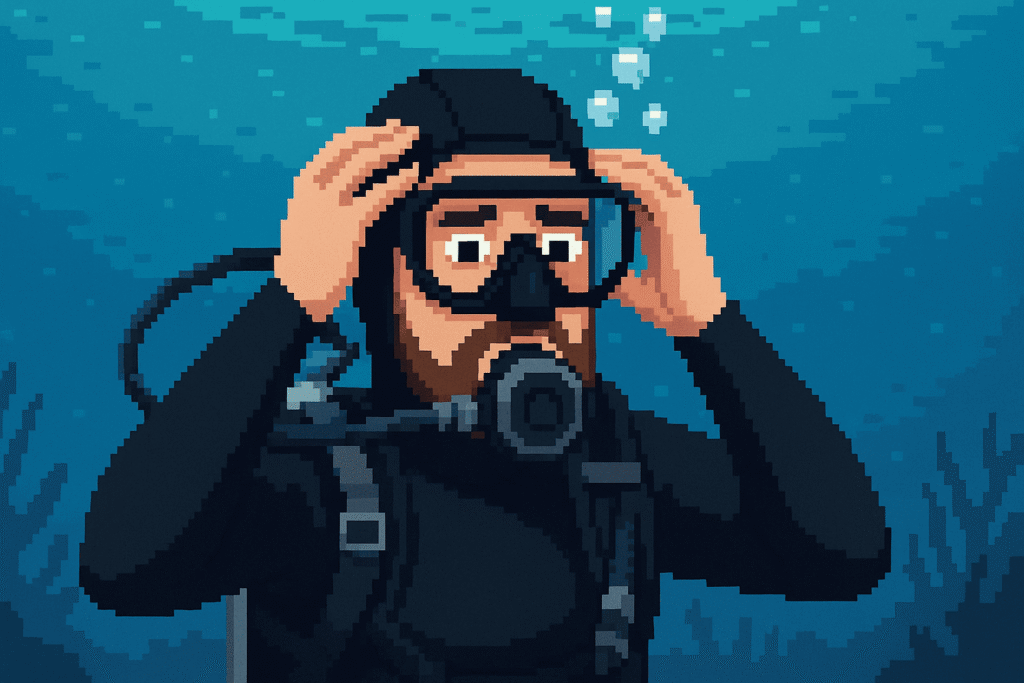
Every beginner looks like they’re filming an underwater skincare routine. Tugging, adjusting, clearing every five seconds. Stop. Unless your mask is full of water, leave it alone. The more you mess with it, the more leaks you create.
It’s like being a guest and constantly rearranging someone else’s furniture. You look ridiculous, and you’re not making anything better. Strap it right, clear it when you must, then move on. The dive isn’t about your mask.
Don’t Panic
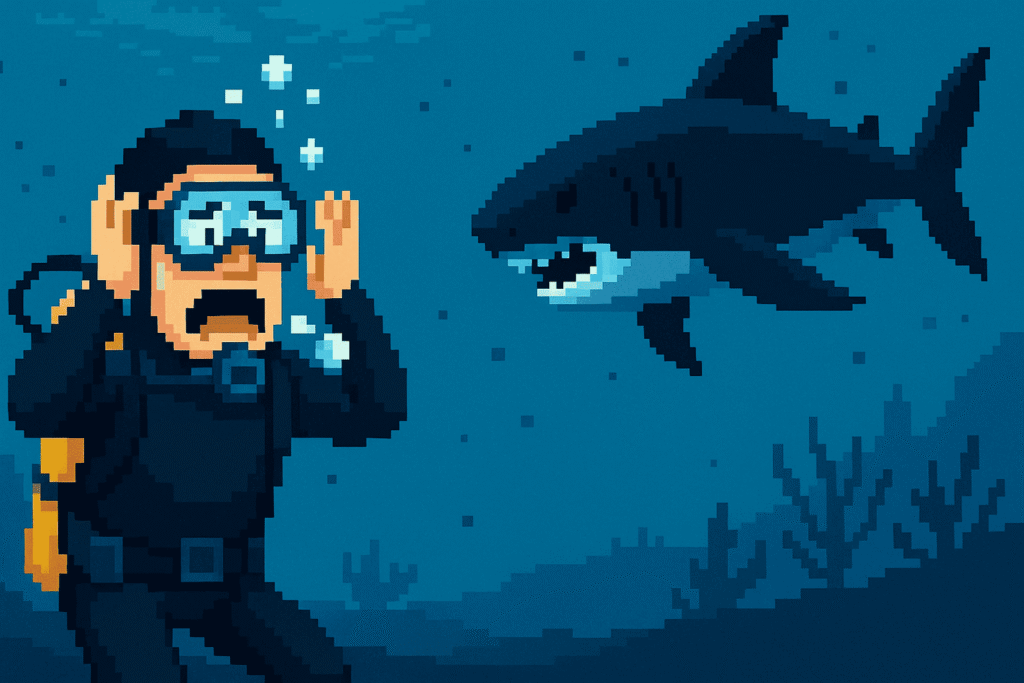
This is the golden one. Panic kills. Period. It makes you suck down air like a vacuum, thrash like a wounded seal, and do stupid things like ripping out your reg or bolting to the surface. The ocean doesn’t forgive panic.
I’ve been in dives where panic tried to creep in. Dark water, zero visibility, currents pulling harder than expected. The trick is simple: stop, breathe, think. Respect where you are. Panic is disrespect. And in the ocean, disrespect gets punished fast.
Don’t Be That Guy on the Boat
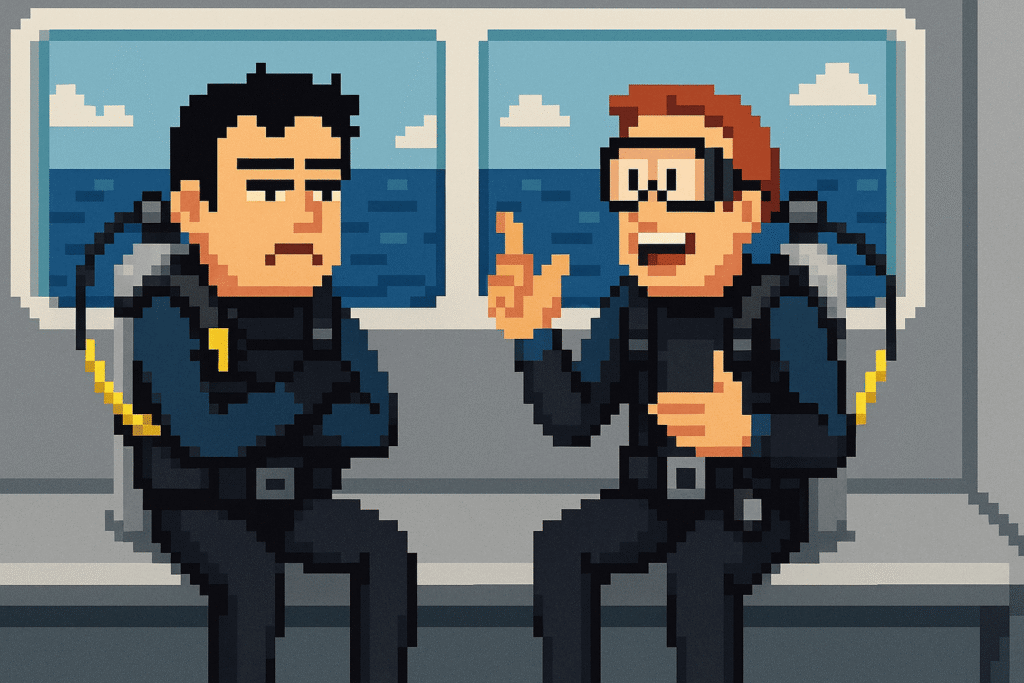
The ocean already tolerated you for an hour. Don’t ruin it topside. Nobody likes the guy blasting music, bragging about depth, or asking for extra air because he drained his tank in fifteen minutes. Don’t touch people’s gear without asking. Don’t act like you’re the dive master when you can’t even sort your own weights. Guests behave, or they don’t get invited back. Same applies here.
Wrap-Up
Scuba diving feels like freedom, but it isn’t your freedom. It’s a borrowed experience in a place that doesn’t belong to you. Every time you drop below the surface, you’re walking into a house where the hosts are fish, corals, and currents older than humanity. And those hosts don’t play nice. They don’t warn you. They don’t forgive you. They just destroy you the second you stop showing respect.
Follow the rules, and the ocean shows you magic. Reefs that glow like alien cities. Wrecks frozen in time. The silence of being weightless in a place humans were never meant to be. Break the rules, and the ocean writes you off instantly. No second chances, no sympathy.
You’re a guest in the ocean. Act like one. Or don’t — and let’s see how long you last before the sea decides you’ve overstayed your welcome.
Hey! Did you check out the other Scuba Diving Blog? Check it out: Why you need to try Scuba Diving

